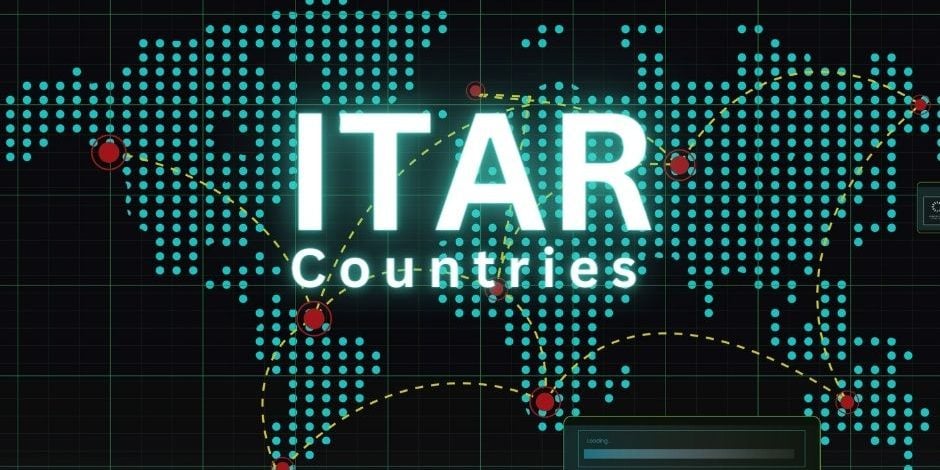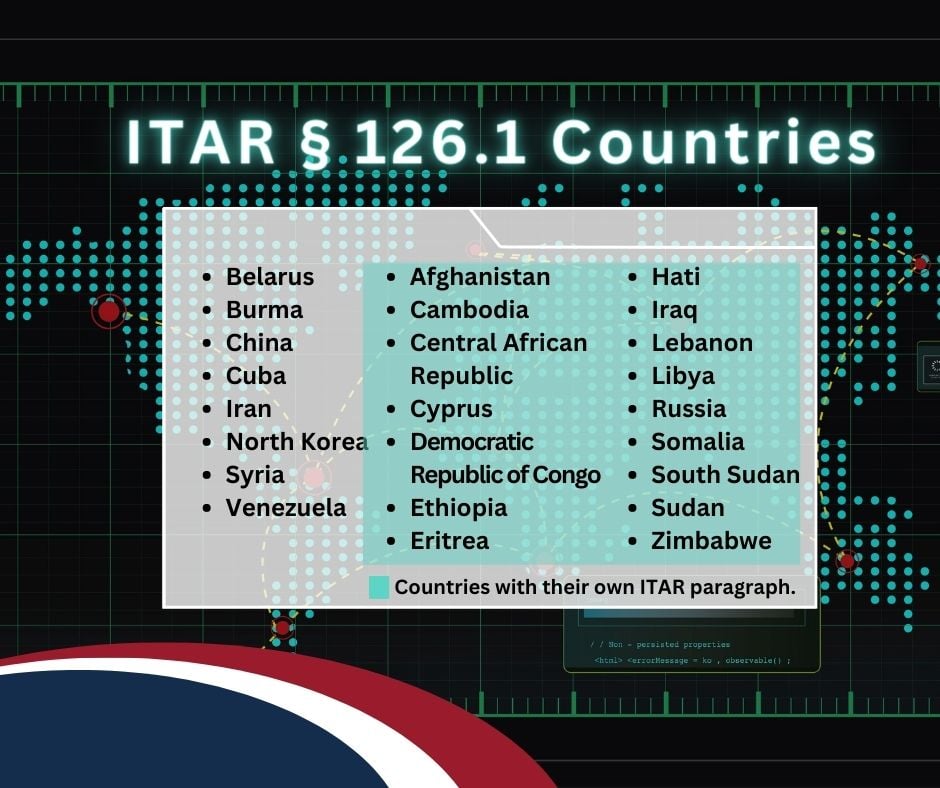If you are part of the defense industry in any capacity, chances are good that you have read or heard the term “ITAR Countries.” But what are they, exactly? In today’s post, we explore this essential component of ITAR compliance.
A Quick Introduction to ITAR
The International Traffic in Arms Regulation (ITAR) is a United States regulatory regime that controls the import and export of defense and space-related articles and services as defined in the US. Munitions List (USML).
ITAR applies not only to the items in the USML but also to the related technical data and software.
It is also important to note that, under ITAR, “export” includes not only physically transporting defense or space-related items into other countries but also sharing technical information with non-U.S. persons.
ITAR is found in parts 120-130 of Title 22 of the Code of Federal Regulations (CFR).
To learn more about ITAR Compliance and what constitutes an export, read our previous posts, “Can You Mail ITAR Data?” and “Is ITAR Data CUI?”
About ITAR Countries
When people talk about “ITAR countries,” they are usually referring to countries included in ITAR section 126.1, “Prohibited exports, imports, and sales to or from certain countries.”
According to that section of the ITAR, the following countries have a “policy of denial” when it comes to defense articles and services: Belarus, Burma, China, Cuba, Iran, North Korea, Syria, and Venezuela.
There is another group of countries where the policy of denial applies as specified in associated paragraphs of ITAR: Afghanistan, Cambodia, Central African Republic, Cyprus, Democratic Republic of Congo, Ethiopia, Eritrea, Haiti, Iraq, Lebanon, Libya, Russia, Somalia, South Sudan, Sudan, Zimbabwe.
This second group of ITAR countries warrant their own special paragraphs due to special exceptions that are granted on a case-to-case basis.
For example, in the case of Russia, ITAR states that:
“It is the policy of the United States to deny licenses or other approvals for exports of defense articles and defense services destined for Russia, except that a license or other approval may be issued, on a case-by-case basis:
(1) For government space cooperation; and
(2) Prior to September 1, 2021, for commercial space launches.”
In other words, space cooperation is the only area where the United States can consider exceptions to ITAR’s policy of denial as it relates to Russia.
Why Are ITAR Countries Important?
Countries included in ITAR section 126.1 are important because they represent one of the fundamental aspects of ITAR.
Failing to properly understand the principles that apply to those countries can have costly consequences. Remember that any violation of ITAR provisions can result in civil fines and penalties.
Other possible consequences include suspension or debarment from government contracts, seizure or forfeiture of items, and revocation of export privileges.
For example, according to ITAR 126.1(b):
“A defense article licensed or otherwise authorized for export, temporary import, reexport, or retransfer under this subchapter may not be shipped on a vessel, aircraft, spacecraft, or other means of conveyance that is owned by, operated by, leased to, or leased from any of the proscribed countries, areas, or other persons referred to in this section.”
This means that the restrictions of ITAR 126.1 apply not only to end users but also to shippers. Understanding nuances such as this can mean the difference between enjoying success or facing a long and complex legal struggle.
Need To Achieve ITAR Compliance? We Are Here To Help
Whether it’s CMMC, NIST SP 800-171, DFARS, or ITAR, we help organizations achieve compliance with all applicable cybersecurity regulations at any level so that they can win and maintain Department of Defense (DoD) contracts.
Brea Networks, LLC is a fully Registered Provider Organization (RPO) and is a Microsoft partner with full Microsoft GCC High licensing and migration solutions.
Brea Networks, LLC / CMMCCompliance.us
451 W. Lambert Rd Suite 214
Brea, CA 92821
Tel: (714) 592-0063





